The Best Verbena Companion Plants That Will Make Your Garden Pop
The Best Verbena Companion Plants That Will Make Your Garden Pop
Verbena is a beautiful and versatile plant that can add a touch of color and interest to any garden. But did you know that verbena can also benefit from companion planting?
Companion planting is the practice of planting certain plants together to enhance their growth and productivity. When done correctly, companion planting can help to attract beneficial insects, deter pests, and improve the overall health of your garden.
In this blog post, we will discuss the best verbena companion plants. We will also provide some tips on how to plant and care for these plants together.
Why Companion Plant Verbena?
There are several reasons why you might want to companion plant verbena. First, verbena can benefit from the company of other plants that attract beneficial insects. These insects, such as bees and butterflies, help to pollinate verbena flowers, which leads to more blooms.
Second, verbena can deter pests. Some plants, such as marigolds, release chemicals that repel pests such as aphids and whiteflies. This can help to protect your verbena plants from damage.
Third, companion planting can improve the overall health of your garden. When different plants are planted together, they can help to each other by exchanging nutrients and water. This can create a more balanced and healthy ecosystem in your garden.
What Are the Best Verbena Companion Plants?
There are many different plants that can be companion planted with verbena. Here are a few of the best options:
- Marigolds: Marigolds are a classic companion plant for verbena. They attract beneficial insects and deter pests, and they also have similar growing requirements.
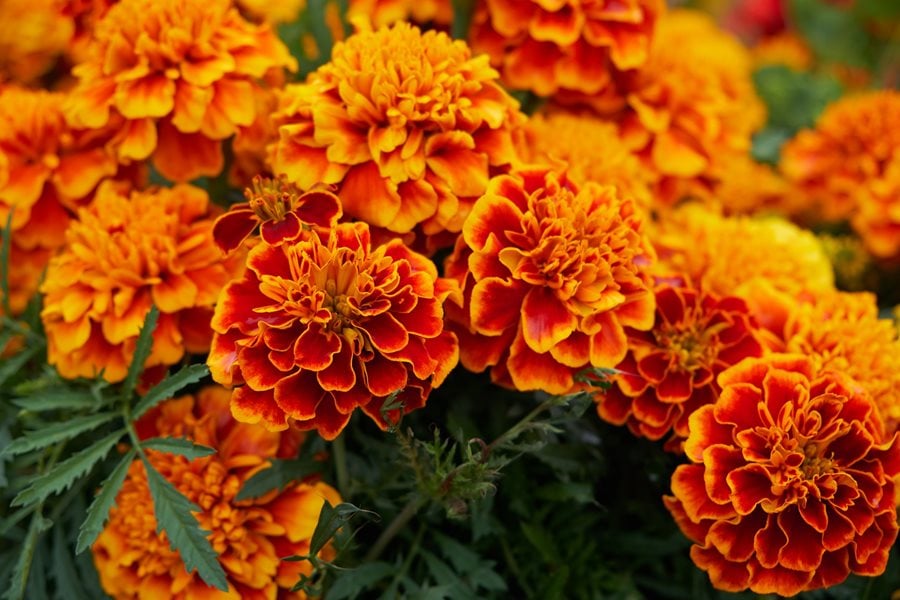
- Nasturtiums: Nasturtiums are another great companion plant for verbena. They come in a variety of colors and add a touch of brightness to any garden. They also attract beneficial insects and deter pests.

- Zinnias: Zinnias are a popular choice for summer gardens. They come in a wide range of colors and bloom for a long period of time. Zinnias also attract beneficial insects and deter pests.
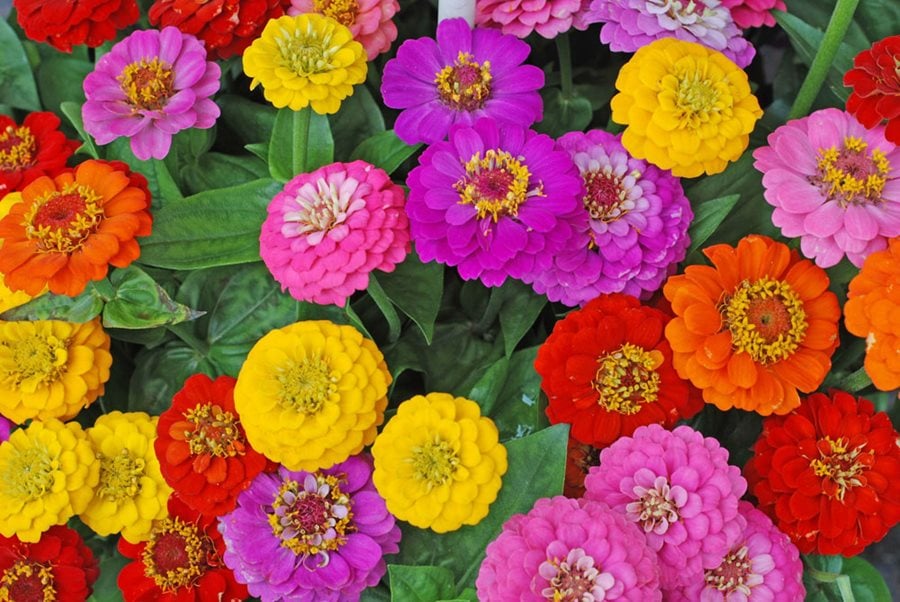
- Ornamental grasses: Ornamental grasses add height and texture to a garden. They also help to deter pests and attract beneficial insects.
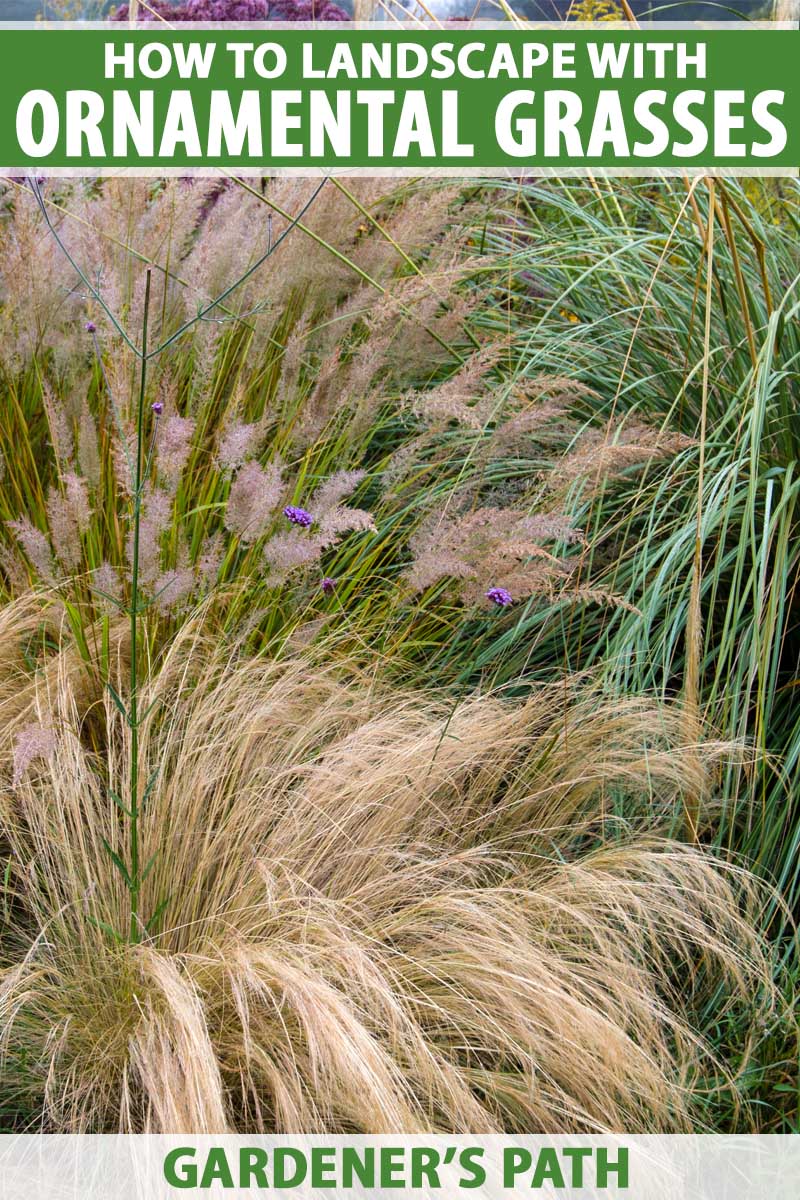
- Lavender: Lavender is a fragrant herb that can be companion planted with verbena. It attracts beneficial insects and deters pests. Lavender also helps to improve the drainage of the soil, which can benefit verbena plants.
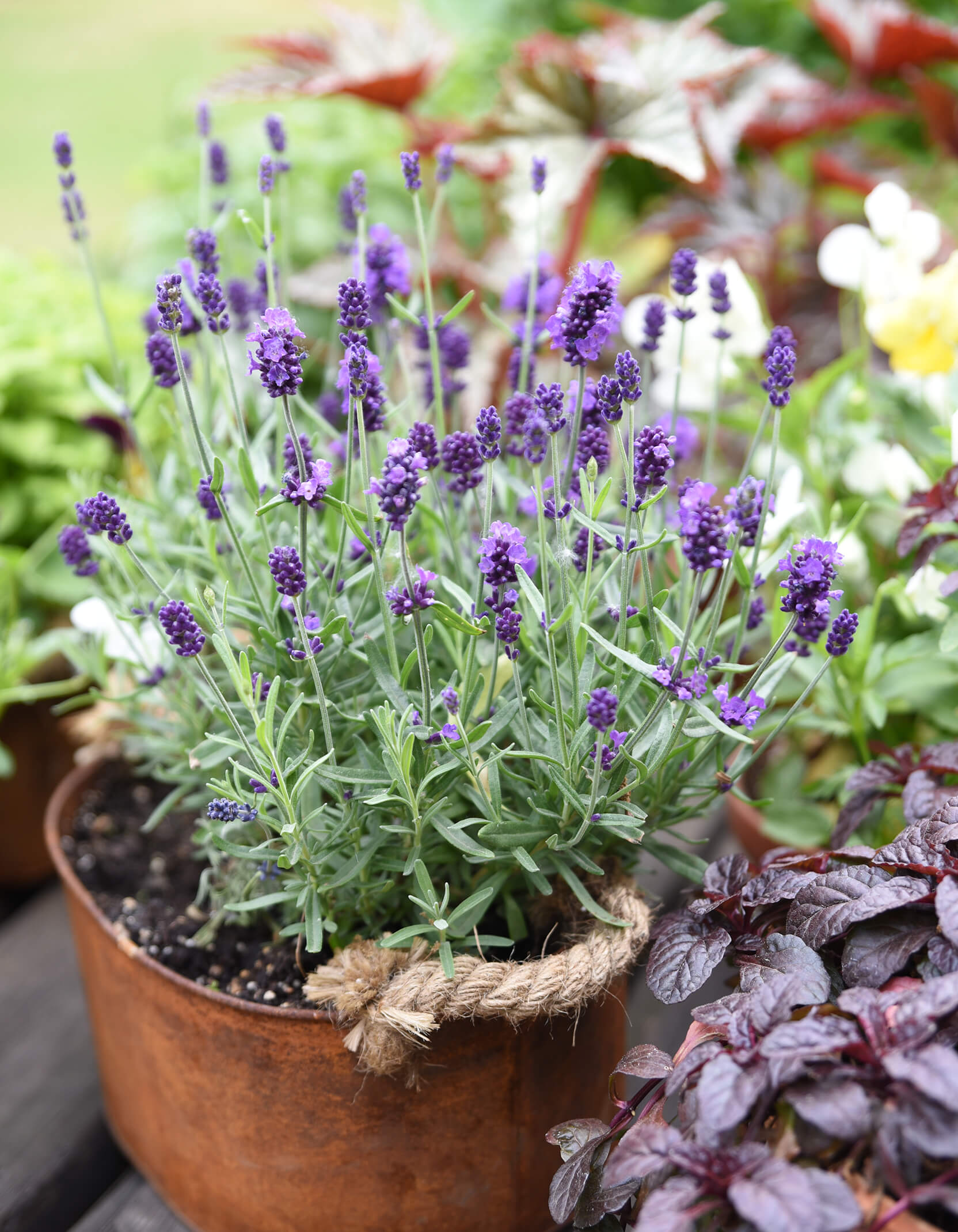
How to Plant and Care for Verbena Companion Plants
When planting verbena companion plants, it is important to choose plants that have similar growing requirements. All of the plants listed above prefer full sun and well-drained soil.
Once you have chosen your plants, you can plant them together in a garden bed or container. When planting, be sure to space the plants appropriately. The specific spacing requirements will vary depending on the type of plants you are planting.
After planting, you will need to water your verbena companion plants regularly. You should also fertilize them every few weeks during the growing season.
Conclusion
Companion planting is a great way to enhance the beauty and productivity of your garden. By planting verbena with the right companion plants, you can attract beneficial insects, deter pests, and improve the overall health of your garden.
Verbena is a beautiful and versatile flowering plant that can be grown in a variety of settings. It is also a great companion plant for other flowers, as it helps to attract pollinators and deter pests.
Some of the best companion plants for verbena include:
- Marigolds: Marigolds are a great companion plant for verbena because they help to repel pests such as aphids and spider mites. They also have similar growing requirements, so they will thrive in the same conditions.
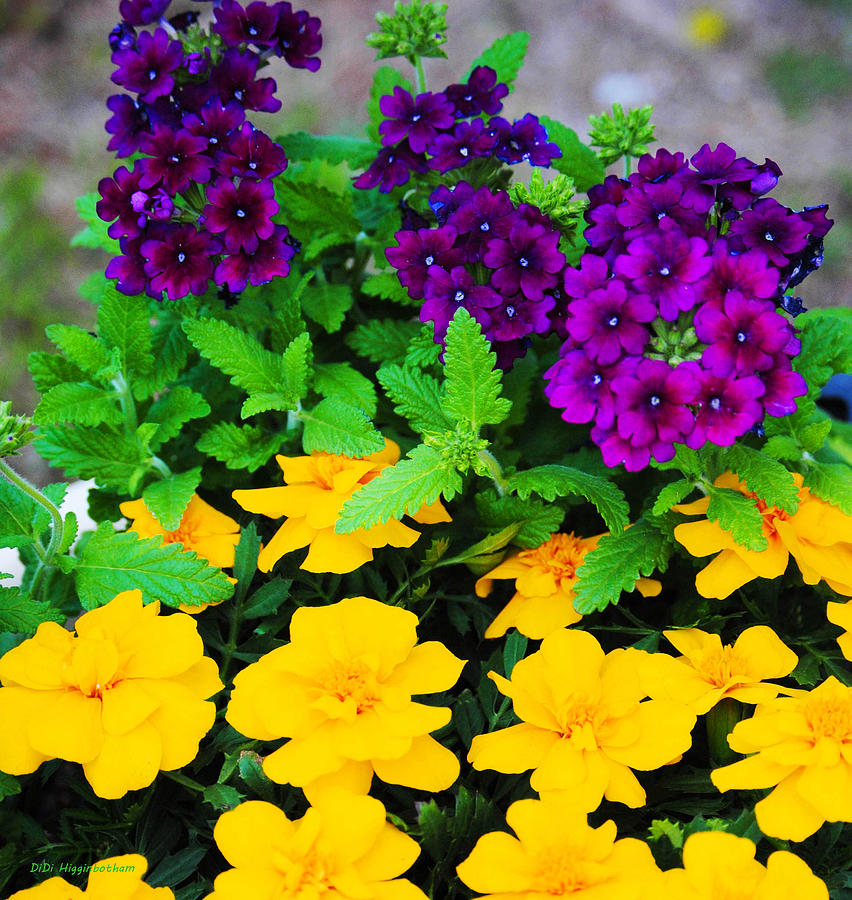
- Zinnias: Zinnias are another great companion plant for verbena because they have similar flower colors and bloom times. They also attract pollinators, such as butterflies and bees, which will help to keep your verbena plants healthy.

- Ornamental grasses: Ornamental grasses add height and interest to a verbena planting, and they also help to deter pests. Some good choices for ornamental grasses include miscanthus, pampas grass, and fountain grass.
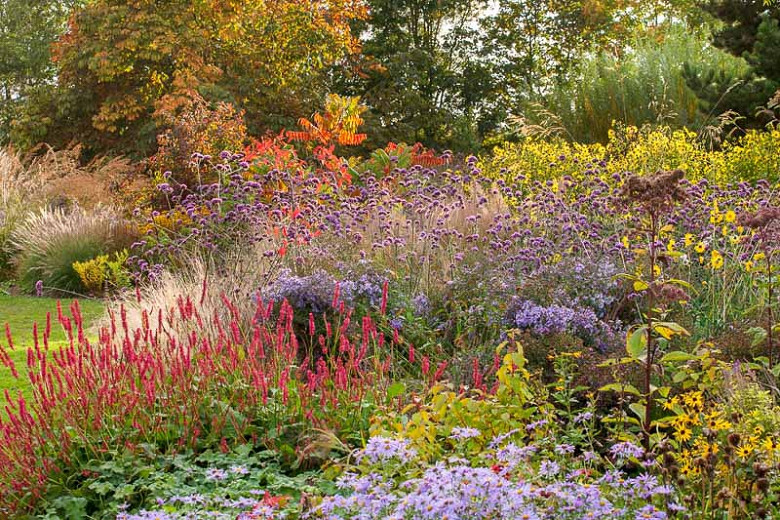
If you are looking for more information about verbena companion plants, I recommend visiting Gardenia Inspiration. This website has a wealth of information on the topic, including a list of the best companion plants for verbena, as well as tips on how to plant and care for these plants.
FAQ of verbena companion plants
Q: What are some good companion plants for verbena?
A: Verbena is a versatile plant that can be paired with a variety of other plants. Some good companion plants for verbena include:
- Mums: Mums and verbena both attract pollinators, so they make a great combination. Mums also help to deter spider mites, which can be a problem for verbena.
- Shasta daisies: Shasta daisies and verbena have similar growing conditions, so they can be planted together without any problems. They also complement each other's colors nicely.
- Dill: Dill is a good companion plant for verbena because it helps to repel spider mites. It also attracts pollinators, which can help to improve the pollination of verbena flowers.
- Cilantro: Cilantro is another good companion plant for verbena because it helps to repel spider mites. It also has a strong scent that can help to deter other pests, such as aphids.
- Garlic: Garlic is a good companion plant for verbena because it helps to repel aphids, spider mites, and other pests. It also has a strong scent that can help to deter deer and rabbits.
Q: What are the benefits of companion planting with verbena?
A: There are many benefits to companion planting with verbena. Some of the benefits include:
- Improved pollination: Companion planting can help to improve the pollination of verbena flowers. This is because the different plants attract different pollinators, which can help to ensure that verbena flowers are pollinated effectively.
- Reduced pest problems: Companion planting can help to reduce pest problems. This is because some plants, such as dill and cilantro, help to repel pests that can be a problem for verbena.
- Increased yields: Companion planting can help to increase yields. This is because some plants, such as mums and shasta daisies, help to improve the growth and development of verbena plants.
- Enhanced beauty: Companion planting can enhance the beauty of your garden. This is because different plants can complement each other's colors and textures.
Q: What are some common mistakes people make when companion planting with verbena?
A: Some common mistakes people make when companion planting with verbena include:
- Planting incompatible plants together: Some plants are incompatible with verbena and should not be planted together. For example, verbena should not be planted near basil or potatoes.
- Not considering the growing conditions of the plants: When companion planting, it is important to consider the growing conditions of the plants you are planting together. For example, verbena prefers full sun, so it should not be planted with plants that prefer shade.
- Not planting enough plants: If you want to reap the benefits of companion planting, you need to plant enough plants. For example, if you want to use mums to deter spider mites, you need to plant enough mums to create a strong scent.
Q: How can I choose the right companion plants for verbena?
A: When choosing companion plants for verbena, there are a few things you should keep in mind:
- The growing conditions of the plants: As mentioned earlier, it is important to consider the growing conditions of the plants you are planting together. For example, verbena prefers full sun, so you should choose companion plants that also prefer full sun.
- The benefits you want to achieve: Do you want to improve pollination? Reduce pest problems? Increase yields? Enhance beauty? Once you know what you want to achieve, you can choose companion plants that will help you achieve your goals.
- The colors and textures of the plants: Companion plants can also be chosen for their colors and textures. For example, if you want to create a colorful border, you could plant verbena with mums, shasta daisies, and dill.
Image of verbena companion plants
5 different images of "verbena companion plants" from Pinterest:
- Dill: Dill is a good companion plant for verbena because it helps to repel spider mites.
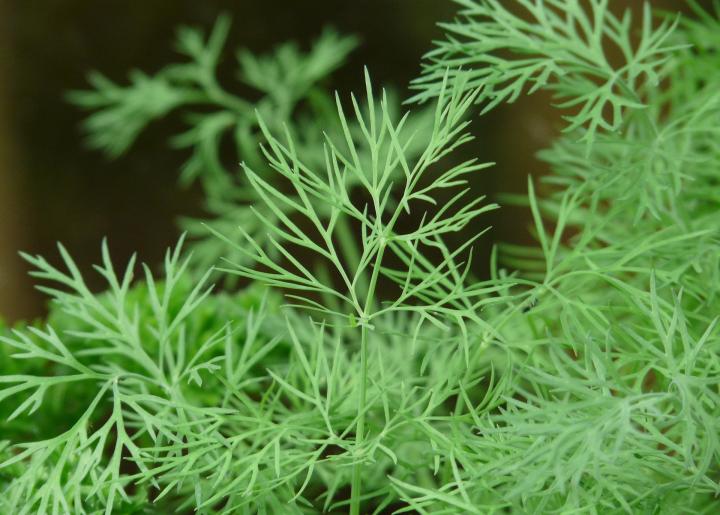
- Cilantro: Cilantro is another good companion plant for verbena that helps to repel spider mites.
- Garlic: Garlic is a good companion plant for verbena because it helps to attract beneficial insects that prey on spider mites.

- Mums: Mums are a good companion plant for verbena because they help to drive spider mites away.

- Shasta daisies: Shasta daisies are a good companion plant for verbena because they help to draw in the predators of spider mites.

Post a Comment for "The Best Verbena Companion Plants That Will Make Your Garden Pop"